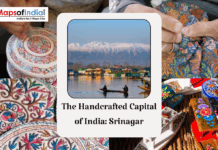What are termed modern practices of history writing began with the colonial perception of India history. Every type of historical investigation that has followed since then has had to build on, or reverse, or negate what the colonial historians said of the past.
This history writing occurred as colonial rule took root in the Indian sub-continent onwards of the 18th century. What European scholars sought to do was search for histories of India. However, nothing they studied, no period that they covered, could help them find a very European notion of what a history should be like. This view was influenced by the European Enlightenment. A view that looked at linear and very rigid definitions of history.
In this view, the Indian sub-continent was seen as only the bearer of Hindu and Sanskritic civilisation. The number of chronicles by Persian and Turkish writers were by and large ignored. What did it matter that this constituted entire centuries of Indian history. The fact that it didn’t meet what the European Indologists were looking for was enough for it to not be considered history.
As historian Romila Thapar states, “Hindu and sanskritic elements were highlighted as the contribution of India to World history, and the presence of other religious and linguistic culture such as Buddhism, Jainism or even Islam as it evolved in India, were barely recognised in terms of constructing Indian civilisation.”
Societies were problematically thought by the British to either possess a sense of history or lack it. The European historians thought of India as two-dimensional and lacking in history. ‘Ahistorical’ was the term given to a society like India’s.
Not only did India lack history, according to the colonial thought process, but it was explained that time in India was cyclical. In reality, Indian society had evidence of both linear and cyclical time but the European Indologists chose only to recognise Indian notion of time as cyclical. This was done in order to correspond to constructing and exoticising Indian civilisation. India with a mystical past was supposed to be different from the British. For how could there possibly be any sameness between a European “us” and an Indian “them”? To let the difference be, entirely new versions of history were created and it is this version of history that history writers of today seek to challenge or negate.



